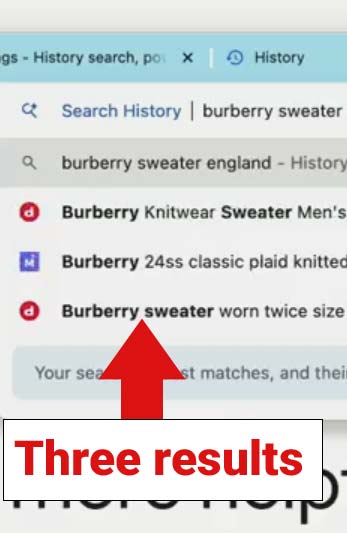A Google Chrome Engineer printed a LinkedIn submit outlining the brand new Chrome AI Historical past function and the alerts it makes use of to floor beforehand visited websites. The submit illustrates that pure language browser historical past search may turn into a site visitors supply, and web optimization should evolve in response.
Historical past Search Powered By AI
Google lately introduced a brand new opt-in function in Chrome that provides customers the good thing about AI to go looking by means of their browser historical past and discover a web page that they’ve beforehand visited. This makes it simpler for a web site that has beforehand been visited to acquire one other go to from the identical individual.
Chrome AI Historical past Searches Web page Content material
Chrome Engineering Chief Addy Osmani wrote an outline of the brand new Chrome AI Historical past function that contained some undocumented details about the way it works which reveals how textual content and pictures are used as information sources for the AI to determine a web site {that a} consumer had beforehand visited.
The Chrome Browser historical past usually simply searches the URL and Web page Title to search out one thing within the search historical past. “Historical past Search, powered by AI” appears on the webpage content material, together with the pictures.
Osmani shared an instance the place he recognized a web page he had beforehand visited wherein the AI used picture content material to search out what he was searching for.
He gave an instance of discovering a web page he visited that’s associated to purchasing:
“Lately, I used to be shopping for a brand new sweater and took a take a look at just a few choices throughout just a few websites. I noticed some neat Burberry designs. However there was one particular Burberry sweater I appreciated from some time again that stated “England” on it. I can’t keep in mind the place I noticed it or tips on how to discover that web page once more.
With AI historical past search, I merely kind “Burberry sweater England” and voilà – the precise web page seems, although “England” was solely talked about inside a picture on the location.”
What does he imply that the phrase “England” was solely talked about in a picture? He doesn’t particularly say that the phrase was within the picture meta information like within the alt tag. I assumed that’s what he meant, that the phrase England was within the picture metadata. So I discovered the precise web page he was (it’s in a video he embedded in his LinkedIn submit) and checked the supply code and the phrase “England” was not within the meta information.
When you watch the video the AI Browser historical past reveals a number of pages so it’s potential that the AI merely ignored the phrase “England” simply surfaced all the things that had a partial match. However, Osmani stated it was surfaced due to the picture.
Right here’s a screenshot from his video:
Right here’s the AI search outcomes exhibiting a number of pages within the outcomes:

The above picture reveals that the AI historical past surfaced greater than only one web page and the opposite pages weren’t a couple of shirt that stated England, solely the one. So it may very nicely be that the AI historical past was surfacing the England web page not as a result of it had the phrase England within the picture however as a result of it was related for the phrases Burberry and Sweater. However once more, it could possibly be as a result of the phrase was within the picture, that is one thing that wants clarification.
Osmani then gives two extra examples that present how utilizing key phrases that seem within the web page content material will assist floor net pages {that a} consumer had beforehand visited.
AI Browser Search Documentation
Google maintains a help page dedicated to this new feature the place it lists the next suggestions that additionally give extra details about how the AI browser search works.
- “Once you search brief and easy textual content, you’ll be matched on to the web page title or URL. You received’t discover an AI-powered end result.
- You may charge the most effective match end result. On the backside of the most effective match end result, choose Thumbs up or Thumbs down .
- If you choose Thumbs down , you possibly can present extra suggestions on why the end result didn’t meet your wants.
- You can even seek for shopping historical past within the deal with bar.”
Takeaways
Chrome AI search permits repeat guests by means of pure language searches. However when customers search with easy textual content Chrome will default to easy key phrase matching to the web page title and URL.
- Actual key phrases will not be essential
- URLs will not be essential
- Quick easy textual content is matched through Title tag and URL
- Key phrases in title tag and URL that match to how customers will keep in mind the location (the subject) can nonetheless be essential
- The flexibility to charge outcomes reveals that this function will proceed to evolve
Chrome AI Historical past is a helpful function and can doubtless turn into extra outstanding as folks turn into extra conscious of it and folks turn into extra accustomed to utilizing AI that’s constructed into their browsers and gadgets. This doesn’t imply it can turn into helpful so as to add key phrases all around the meta information nevertheless it does present how the way forward for web optimization is rising to accommodate extra than simply search as AI takes a higher position in surfacing net pages.
Learn the submit on LinkedIn:
Introducing the new Chrome AI History feature
Featured Picture by Shutterstock/Forged Of 1000’s
